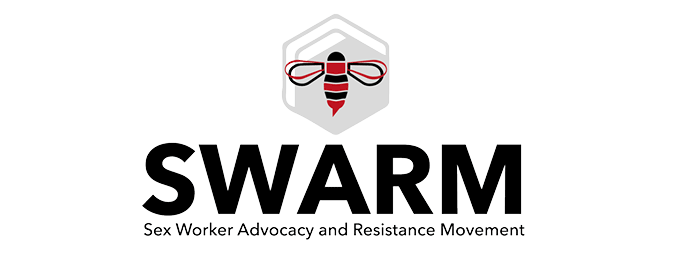[Content note: Murder of a trans migrant sex worker]
On the night of 16th August, Vanessa Campos was murdered as she worked in the Bois de Boulogne in Paris. She was a trans woman, a migrant, and a sex worker - all identities which can make a person the target of violence in Europe, both from the state and from individuals. SWARM and the XTalk Project, in association with trans and sex workers’ rights organisations across France and Europe, are coming together to remember her and call for immediate action to prevent further deaths.
Immediately following Vanessa’s death, STRASS published a statement of rage and mourning. The English translation is by ICRSE. Below is an edited extract.
Once again we are in shock. On the night of August 16-17, we received several messages and calls from colleagues from the Bois de Boulogne reporting the aggression and death of Vanessa.
7 to 8 men attacked her. This follows other previous attacks. It was probably a gang of men who regularly assault sex workers and their clients to rob them. This phenomenon of gangs of men targeting female sex workers is currently developing throughout the Ile de France (Paris) region. The sex workers who try to organize and defend themselves and chase them are then attacked separately.
Today we mourn this loss and feel as usual abandoned. The murders of trans women sex workers are not rare. This is a recurring phenomenon and we regularly try to alert public opinion and the authorities to this violence. Unfortunately, as always, we find ourselves alone.
Why does the life of trans women migrant sex workers matter so little? Why are our deaths treated only as news? Why are journalists so ignorant or so disrespectful that they say "a transvestite prostitute" is dead and continue to begrudge us into death? Does a life of a whore not count?
We have inside us this strange impression that our dead do not arouse any emotion. For us, there is never national mourning. There is never an official commemoration. The political class remains silent. Once the sensationalist press articles are over, it's the return to silence, and we have to go back to work with fear, waiting to be next.
A migrant woman killed is a person who is thought to have no ties in France anyway. It's one less undesirable. There will be no one to protest when her case will be closed, because her family, if they have not rejected her, is too far away to deal with it.
Her family is us. We will go on with our lives carrying her in our memories. We continue to live hoping that by resisting, things will perhaps improve a little for those younger ones who will take our place after us.
ICRSE, TGEU - Transgender Europe, STRASS Syndicat du TRAvail Sexuel and Acceptess Transgenres - have called for an International Day of Action in Vanessa’s memory on Friday 21st September. SWARM will be protesting, along with the Women’s Strike Assembly and the XTalk Project, outside the French Embassy.
Vanessa’s murder comes against the political background of France’s 2016 implementation of the Nordic Model of client criminalisation, without listening to the warnings from sex workers that this would make them less safe. Campaigners in favour of the Nordic Model argued that it would increase sex workers’ safety; the evidence demonstrates exactly the opposite[1]. Sex workers’ organisations worldwide, as well as NGOs such as Amnesty International and Human Rights Watch, advocate for the full decriminalisation of sex work and oppose the Nordic Model.
Research by TGEU found that of the over 1,700 trans and gender diverse people who were reported murdered between 2008-2014, 65% of those whose profession was known were sex workers.[2]
Join us on 21st September to mourn Vanessa, and to demand immediate action to secure rights and justice for all migrants, all trans people, and all sex workers. #nousvoulonvivre #letussurvive
[1] Medecins du Monde, What do sex workers think about the French Prostitution Act? http://www.sexworkeurope.org/sites/default/files/userfiles/files/EN_synthesis_SW_final_2.pdf
[2] TGEU 2015, https://transrespect.org/wp-content/uploads/2015/10/TMM-PR-IDAHOT2015-en.pdf
Event details
21st September, 2 - 3pm, French Embassy 58 Knightsbridge, London, SW1X 7JT
If possible please wear white and carry white roses, red umbrellas, trans flags, and placards condemning xenophobia, racism, transphobia and the criminalisation of sex work, while standing in solidarity with all migrants, trans people, and sex workers. Find the Facebook event here [https://www.facebook.com/events/2029476033780409/] and follow it for any updates.
Organisations participating:
Women’s Strike Assembly: https://womenstrike.org.uk/
XTalk: https://www.xtalkproject.net/
SWARM: https://www.swarmcollective.org/
International Committee on the RIghts of Sex Workers in Europe (ICRSE): http://www.sexworkeurope.org/
Transgender Europe (TGEU): http://www.tgeu.org/
Acceptess Transgender: http://www.acceptess-t.com/
Syndicat du TRAvail Sexuel (STRASS): http://strass-syndicat.org



